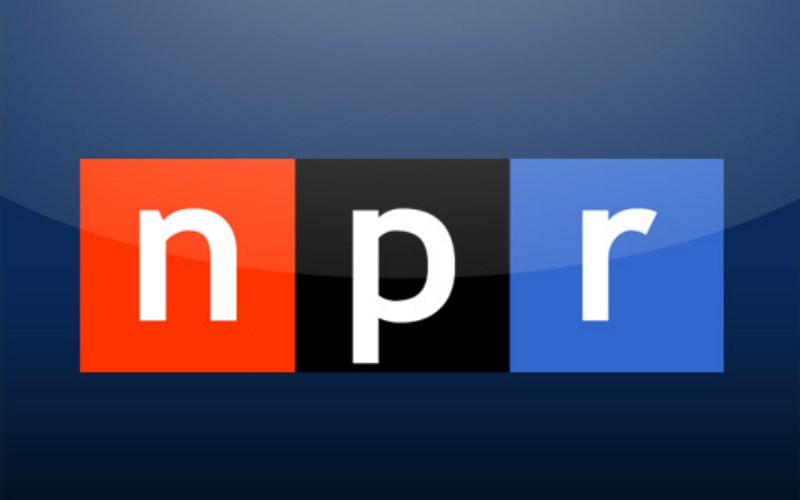That prediction comes after NPR suspended then accepted the resignation of Uri Berliner, a veteran NPR editor, who had accused the organization of left-wing bias.
Katherine Maher, the CEO since March, has now come under fire for opinions expressed on social media and in various presentations.

In his essay, which appears at The Free Press, Berliner cited a number of editorial missteps he said were examples of an NPR different from the outlet of integrity at which he began a career 25 years ago.
Among those missteps:
- NPR’s fascination with allegations of collusion between former President Donald Trump and Russia, coverage that included 25 interviews with Rep. Adam Schiff, the lead antagonist, but sparse coverage of the Mueller report that found no evidence of collusion.
- The Hunter Biden Laptop story. “We don’t want to waste the listeners’ time on stories that are just pure distractions,” was NPR’s response to the story, Berliner reported.
- The origins of COVID-19. “Anthony Fauci and former NIH head Francis Collins, representing the public health establishment, were the most notable critics” of the theory that the virus leaked from a Wuhan, China lab, Berliner reporter. “That was enough for NPR. We became fervent members of Team Natural Origin, even declaring that the lab leak had been debunked by scientists. But that wasn’t the case.”
Berliner posted his NPR resignation letter to X on April 17 and tagged Maher.
“I am resigning from NPR, a great American institution where I have worked for 25 years. I don’t support calls to defund NPR. I respect the integrity of my colleagues and wish for NPR to thrive and do important journalism. But I cannot work in a newsroom where I am disparaged by a new CEO whose divisive views confirm the very problems at NPR I cite in my Free Press essay,” he wrote.
Berliner isn’t the only problem for Maher, who joined NPR after serving as CEO of Wikimedia Foundation.
She has also been criticized by X owner Elon Musk, who last week took issue with comments Maher made in a 2021 interview while she was CEO of Wikipedia. In the interview, she said that most of history “has been written by white, colonial, European, North American men.” It was important for Wikipedia to focus on “correcting the record,” she said.
“Katherine Maher is blatantly racist and sexist – one of the worst human beings in America,” Musk wrote.
Earlier Musk responded to a post by Sen. Ted Cruz in which a video clip shows Maher describing “truth” as an outdated concept. In the comments Musk writes, “Certifiably insane.”
“(Berliner) ended up resigning because he realized there would be no hope of returning journalistic ethics to NPR,” Ben Johnson, a Washington Stand senior reporter and editor, said on Washington Watch Tuesday.
In a lengthy email to all staff, after Berliner’s essay first appeared, Maher never mentioned Berliner by name. She defended NPR’s editorial judgment, its processes and its people but did announce one change: quarterly network-wide editorial planning and review meetings. This would involve NPR outlets across the country.
“They didn't deny what he had to say, which would be impossible essentially given their track record and particularly given the comments that Maher herself has made at various times. So, instead they simply shot the messenger,” Johnson told show host Joseph Backholm.
Maher complained about First Amendment
In an interview with The Atlantic Council in 2021, Maher’s message was that the First Amendment was a troublesome obstacle for journalists because it makes it “a little bit tricky” to censor “bad information” and the “influence peddlers” who spread it.
Johnson says Maher hasn’t changed in her new position as NPR CEO.

“If anything, she's doubling down on the idea that quote-unquote ‘misinformation’ has no place on NPR," ,” Johnson said. "But who determines misinformation? We’ve done multiple stories at The Washington Stand, for example, on fact-checkers either getting it wrong or blatantly bringing narrative in as a condition of misinformation. The facts themselves should come out, but they don't always, particularly when it comes to NPR coverage."
The Corporation for Public Broadcasting, the funding venue for NPR and other government broadcast initiatives, received $525 million last year, Johnson said. Roughly $119 million went to NPR, but that doesn’t tell the whole story of NPR funding.
“In many cases, federal dollars go into other entities that then fund NPR,” Johnson said.
Johnson said NPR exhibited “anti-Christian bias” with a comedic sketch that mocked the crucifixion of Jesus Christ.
The network has also exhibited “left-wing bias” in its reporting of transgender issues, abortion and more.
NPR’s official stance on life
“NPR had an official guidance reminder that no one should ever use the phrase ‘unborn’ because, and this is a quote from the guidance, ‘babies are not babies until they’re born,’” Johnson said.
NPR is “something that never should have begun in the first place. There’s no constitutional authorization for a government-sponsored news service. The Founding Fathers never envisioned anything like that.
“Thankfully, there’s a bill to defund NPR that’s just been introduced by Rep. Bob Good of Virginia. This is going forward, and I think that we can see we’re going to defund NPR in the days to come,” Johnson said.







